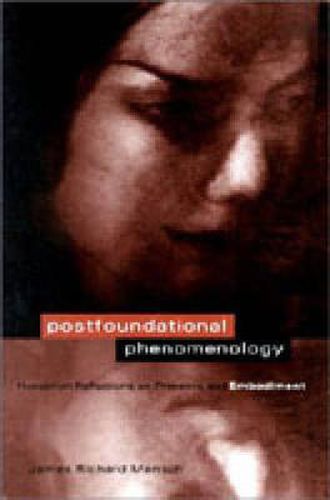Readings Newsletter
Become a Readings Member to make your shopping experience even easier.
Sign in or sign up for free!
You’re not far away from qualifying for FREE standard shipping within Australia
You’ve qualified for FREE standard shipping within Australia
The cart is loading…






Contrary to the conventional view of Husserl as carrying on the Cartesian tradition of seeking a trustworthy foundation for knowledge in the pure observations of a disembodied ego, James Mensch introduces us to the Husserl who, anticipating the later investigations of Merleau-Ponty, explored how the body functions to determine our self-presence, our freedom, and our sense of time. The result is a concept of selfhood that allows us to see how consciousness’s arising from sensuous experiences follows from the temporal features of embodiment. From this understanding of what is crucial to Husserl’s phenomenology, the book draws the implications for language and ethics, comparing Husserl’s ideas with those of Derrida on language and with those of Heidegger and Levinas on responsibility. Paradoxically, it is these postmodernists who are shown to be extending the logic of foundationalism to its ultimate extreme, whereas Husserl can be seen as leading the way beyond modernity to a nonfoundational account of the self and its world.
$9.00 standard shipping within Australia
FREE standard shipping within Australia for orders over $100.00
Express & International shipping calculated at checkout
Contrary to the conventional view of Husserl as carrying on the Cartesian tradition of seeking a trustworthy foundation for knowledge in the pure observations of a disembodied ego, James Mensch introduces us to the Husserl who, anticipating the later investigations of Merleau-Ponty, explored how the body functions to determine our self-presence, our freedom, and our sense of time. The result is a concept of selfhood that allows us to see how consciousness’s arising from sensuous experiences follows from the temporal features of embodiment. From this understanding of what is crucial to Husserl’s phenomenology, the book draws the implications for language and ethics, comparing Husserl’s ideas with those of Derrida on language and with those of Heidegger and Levinas on responsibility. Paradoxically, it is these postmodernists who are shown to be extending the logic of foundationalism to its ultimate extreme, whereas Husserl can be seen as leading the way beyond modernity to a nonfoundational account of the self and its world.